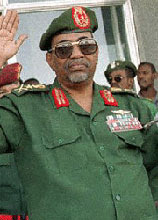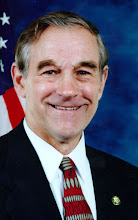President Obama has an obligation to keep up the effort in Afghanistan and make sure the gains we have tried so hard for in Iraq do not crumble. If only our President could hear from one of Iraq's potential leaders. He would learn some things he probably isn't hearing much about from his democratic colleagues in Congress.
A few months back I had the honor of interviewing Hayder Al-Khoei, also known as Eye Raki on his blog. Hayder opened up about his recent trip to Iraq, and revealed the progress that is being made. I originally published this story in a local newspaper.
UK College Student Travels to Iraq, reveals the progress being made
Published December 3rd, 2008
Hayder Al-Khoei is an Iraqi-born college student living in London, England, and studying political science. Recently, he interviewed with the Experience about his recent trip to the Middle East, where he spent several weeks in Iraq. Traveling between Baghdad and southern Iraq on his own, he was able to get a good picture of the progress achieved by the Iraqi Army and the newfound sense of security among Iraqis—as well as lingering concerns the country is feeling about the future.Hayder is the 21-year old son of Sayyid Abdul Majid Al-Khoei, an influential Shiite cleric who was assassinated in Najaf in 2003 while trying to serve the will of his people. When he was very young, Hayder left his homeland of Iraq with his family after the 1991 Uprising, and he has spent most of his life living in the UK. He hopes to return to the Middle East permanently in the future, after finishing post-graduate studies in London. I was fortunate enough to learn about his most recent trip to Iraq, where he traveled to Baghdad after a two weeks stay in Iran. His trip later concluded in Amman, Jordan.
"The relaxed atmosphere I saw was very different" he said. "I was in Iraq earlier this year too, but this time I could tell a lot had changed. In many parts of Baghdad, people stay out late at night to drink tea and smoke nergila. That doesn't sound so strange to the average American, but in Iraq, when you can see families out at night enjoying themselves it says a lot about the current security situation".
The biggest differences Hayder noticed were the little things, such as taking a taxi from Baghdad International Airport to the Shiite holy city of Najaf at night, something that was considered dangerous as little as six months ago. Lack of electricity and militiamen roaming the streets could make a deadly combination. But this time, the taxi driver said the 3 hour trip down south would be no problem.
But still, not everything is perfect. Hayder noted that Iraq's electricity production levels still present a huge difficulty, and will need a lot of work to truly meet the needs of the Iraqi people. "Electricity is still a big problem. Having no electricity is not only an unbearable inconvenience in the heat but it means roads can be extremely dangerous to travel through at night," he said.Iraq's future also faces a growing threat from the Sahwa—Arabic for "Awakening". They are Sunni tribal councils that have been critical in routing Al-Qaeda from Anbar province and other areas of the country. Some fear the Maliki government could try to disarm the Sahwa, reigniting sectarian tensions that extremists tried so hard to set off. Hayder believes that the Sahwa's threats of rebellion should be taken seriously. If the government fails to integrate most of its 100,000 strong militia into the Iraqi Security Forces, it could jeopardize the many security gains Iraq has achieved. Recently, Maliki's government agreed to take the reins from the US military and pay the Sunni Arab tribesman themselves.
At the same time, great progress has been achieved. The government of Nouri Al-Maliki, Iraq's prime minister, attained a defining moment this year when the Iraqi Army faced off with the Jaish Al-Mahdi, or 'JAM', the militia loyal to Muqtada Al-Sadr that fought two uprisings since 2004 and has been a thorn in the side of coalition forces who have been trying to stabilize the region. Despite an image portrayed by the many critics of the war and the media of incompetence on the part of the Iraqi Army, the facts on the ground appear to tell a different story. Maliki's actions helped to shed his title of a "sectarian" leader. Maliki is a Shiite, and he had often been accused of coddling the Shia militias who maintained control of entire swathes of Baghdad. After multiple crackdowns against Al-Qaeda and other Sunni extremist groups in the north, the Iraqi government finally brought the fight to the Shia extremists, many of whom are suspected of mass kidnappings, executions and brutal torture methods involving drills and other weapons.
"The Sadrists were begging for the cease-fire," said Hayder, who spent most of his four week Iraq visit in the southern part of the country. "They really didn't have a choice. They could either continue the fighting and be humiliated by the Iraqi Army, or beg for a cease-fire in order to save face. For a few years, JAM could play ball with the Iraqi Army, but after the three separate successful crackdowns by the Iraqi Army, JAM were reduced to nothing, and were eventually disbanded by al-Sadr, who retained only a few 'special groups' to tackle the coalition forces in Iraq"
According to Hayder's account, Iraqi police commandos maintain a strong presence in the southern Iraqi cities, including Kufa, scene of some fierce fighting earlier this year when JAM and the Iraqi Army faced off. In the end, the once-feared cleric who led two uprisings against US forces may not be the fiery strongman he has always been seen as.When it comes to the question of the source of Iraq's violence, Hayder does not point to the fact that Iraq is being run by a Shia government—a majority that was once repressed by a favored Sunni majority—for the reason behind the continuing attacks against Iraqis. While the attacks have abated to levels once though improbable, they still persist in some parts of the country, most notably the city of Mosul and the central Diyala Province. American intelligence reports indicate that suicide bombers make their way in from the Gulf States such as Saudi Arabia and unleash their destruction via Syria. Iran has long been accused of funneling arms to support Shiite militias in the south.
"For some of the neighboring countries this isn't about a Shia-led, or a Shia- Kurdish government, there is much more at stake" he said. "The word democracy sends a shiver down the spines of the leaders of those countries. If there was real democracy…many would not be in power today."
Hayder offered his thoughts on the controversial security pact, known as the SOFA, being negotiated between Iraq and the United States. The pact's continuing difficulties have led to speculation that Iraq's newfound ties with Iran could be having a hand in the country's calls for US troops to leave in the coming months. This has become a favorite talking point of the Bush Administration's critics. While he does not rule anything out, Hayder's view on what's happening is that Iraq is trying to assert itself as a sovereign, independent nation. "It's sort of a catch 22 for the Americans because they worked so hard to bring the Iraqi Army up to a good standard...and now, because of all the time, money and effort the US spent on training the Iraqi army, the Iraqi government can tell the US 'thanks but no thanks'. So then really, this is Iraq standing on its own two feet and asserting itself," he stated in his analysis.
The way Hayder sees it; the realities on the ground that suggest a dramatic turn of events in Iraq cannot truly be successful if the success is not recognized."There are a lot of people in the US, especially the Democrats, who downplay any success in Iraq simply because they are at odds with the Bush administration, they want to portray Iraq as a failure because they see Bush as a failure" said Hayder, who believes that there should be no correlation between politics and doing what is morally right by helping the Iraqi people. "You can hate Bush if you want, but just admit that what he did in Iraq turned out for the better. Better for Iraq, better for America and better for the world"










8 comments:
very analytical article, but you haven't wrote much of your own views on the war?
As for the sahwa...hmmm interesting.
:)
Haha, well Touta, in journalism, they say that its always best to be "fair and balanced", so when I wrote the story, I tried my best to remain neutral. When I write columns its very different :)
I would say my views are almost exactly the same as Mr. Al-Khoei, and I am glad that he opened up about his trip because everyone in the United States should hear about the good things that are happening, especially with our current political situation. I have written a number of columns where I can express my real views...if you look at my posts under "Iraq" you can see :)
Add to that CH that coming from an Iraqi, the words hold much more credibility with our lefties than when you or I say them. Even NOBama is coming around on Iraq, I think.
Hello C.H.
It's a very nice and interesting post.
You made us know more about our brother Hayder.
And congratulations for Mr. Obama age, let's the sun shine again..
Sandybelle
AA,
Obama better be coming around, especially if he wants his words about being a "friend to all nations" to actually have some teeth.
Sandy,
Its so good to hear from you...Hayder is a true Iraqi Patriot, just like you :)
The sun is starting to shine again, and there is hope, God willing.
"they still persist in some parts of the country, most notably the city of Mosul"
Yes, I started out today with Sunshine's blog (and some of her relatives). They still live in constant fear and deprivation. If I hadn't found Touta's blog and then this one, I would have been very depressed indeed!
I too majored in political science ('78-'82). When we studied the middle east's history and politics, I wondered why anyone would ever think that a democracy could survive there. It's history and religions are pretty rocky soil for the seeds of democracy. Democracy should bubble up from the people within a country. How can it be "imposed" by one nation on another? One thing that still sticks with me today, is my professor saying the principle of "an eye for an eye" (be it muslim or jew)colors most everthing in that region.
Also, isn't democracy a polar opposite to Islam and it's teachings? If I'm wrong, someone please explain how they can be compatible. Then again, I've never believed that Israel has a true democracy either...but that's a whole 'nother can of worms *sigh*.
I hate it that we (US)kowtow to Israel, and that we got suckered into a war based on falsehoods. I am also torn as to what the US should do now. Why do we have to be the world's police force? Shouldn't the US just butt out of everone's business, pull out the military that is spread all over the world and put that money into better security/intelligence at home? Naive thinking I'm sure...but what is a happy medium?
Good luck Obama...I think you will find you are dammed if you do, and dammed if you don't.
"Shouldn't the US just butt out of everone's business, pull out the military that is spread all over the world and put that money into better security/intelligence at home?"
I am sure that is exactly what 1,070,000 Rwandans were thinking moments before they were hacked to death as the entire free world turned a blind eye.
Ron Paul-style isolationism is not going to accomplish anything, and we have been reminded many times that what goes on overseas affects us here at home. 9/11 and Pearl Harbor are just some examples.
Post a Comment